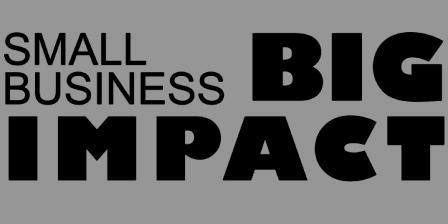Complete guide to start your small business

- Author: Yash Verma
Highlights
Build a business plan
Assess your finances
Registering Your Business
Test marketing
Starting a small business is a great way to make a living and it contributes to the society as well. It's normal to freeze up at the deluge of things that are required to start a business, but it is not a big deal as you might think .Here is the step by step guide to start your own business –
1. Make a business plan-
First and foremost, write your own simple business plan that is a high-level overview of the small business you're about to start. The plan should include the objective behind starting the business. It will be helpful in decision making during business process. Before any lender approves a loan or an investor invests in your company, you will need to provide them with a business plan. Plans also serve as a means of communicating with potential partners, allies, vendors, employees and even customers.
According to the U.S. Small Business Administration, an ideal business plan includes the executive summary, a company description and aspects that make the company stand out, a market analysis (the competition and target demographics), the company's structure, service description, your marketing and sales strategy and any other useful information.
2. Prepare a budget-
Prepare a budget according to your pocket. If you're self-funding, keep your budget realistic and achievable. Keep aside a certain amount of reserve so that it serves as a lender of last resort in case of any difficulty or lack of funds. Keeping budget in mind, you should also determine how long you can stay in business before you need to turn a profit. One of the most frequent mistake people make is over-estimating revenue and under-estimating expenses. Use bookkeeping software like GoDaddy Bookkeeping or Quickbooks that make it easy to export records when doing taxes. You can also hire an accountant for your business who can maintain records.
3. Legal documentation-
When starting a business, it's better to start as sole proprietorship, as it requires less paperwork and minimum expenses. As a sole proprietor, personal tax liability falls on you solely for all the business's profits. Filing paperwork to start a business is a costly affair. You'll need to apply for city or municipality licensing, state incorporation or business entity fees and more. So, once you have got a viable and sustainable model, you can proceed to file for a business entity.
4. Launch marketing campaigns and create a maintenance list-
You must think of marketing ideas for your newly launched business. The best platform for marketing is social media. You can create Facebook pages, twitter profile and LinkedIn page for your business, depending on the appropriate social media channel for your company.
When you have your business running, keep track of regular tasks like payrolls, updating your website, blogging etc.
5. Test marketing-
Check the market potential of your product or services before investing money for your project. If your business is service- based, get in touch with your local chamber of commerce immediately and ask what resources are available for you to speak, present or share information about your business. If your business is product- based, try testing the viability of your product at local swap meets, farmers markets or other community events to get an idea about how and what the public thinks and expects from a particular service.
More Articles
- Online Listing Tips for Real Estate Agents
- How to start a Real Estate business in India - a complete guide !
- Renting Vs Buying property - How will you decide?
- What you should do in Property Management services
- Home Loan Insurance
- How to choose your builder?
- How to ensure fire safety in your home!
- Tips To Keep In Mind While Taking A Home On Rent
- Importance of Home Security
- How to plan your property budget?
- Leased vs. Purchased vs. Co-Working Office Spaces
- Easy Tips to Build an Eco Friendly Home
- Sample Flat - A Trick by a Builder?
- How to have a Beautiful Guest Room? Impress your Guests with these Guest Room Ideas..
- Understanding MCLR and its Effects on Home Loans
- 5 simple ways to close a real estate deal
- Is it worth to buy property near an airport ?
- Home loan tax benefit
- How to be successful in business as an introvert
- Cost effective home decor ideas
- What to Be-Paying Guest or a Tenant??
- Complete guide to start your small business
- Sports township- New trend in India
- Online Listing Tips for Real Estate Agents
- Understanding Floor Area Ratio- FAR
- Town and Country Planning | Meaning and Importance
- Checklist of Important Property Documents- All You Need to Know
- Role of CREDAI in real estate
Copyright © 2026 RERA Filing. All rights reserved.

 Rera Act
Rera Act
 Maharashtra
Maharashtra
 Karnataka
Karnataka
 Telangana
Telangana
 Andhra Pradesh
Andhra Pradesh
 Delhi
Delhi
 Uttar Pradesh
Uttar Pradesh
 Haryana
Haryana
 Gujarat
Gujarat
 Bihar
Bihar